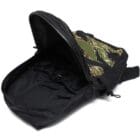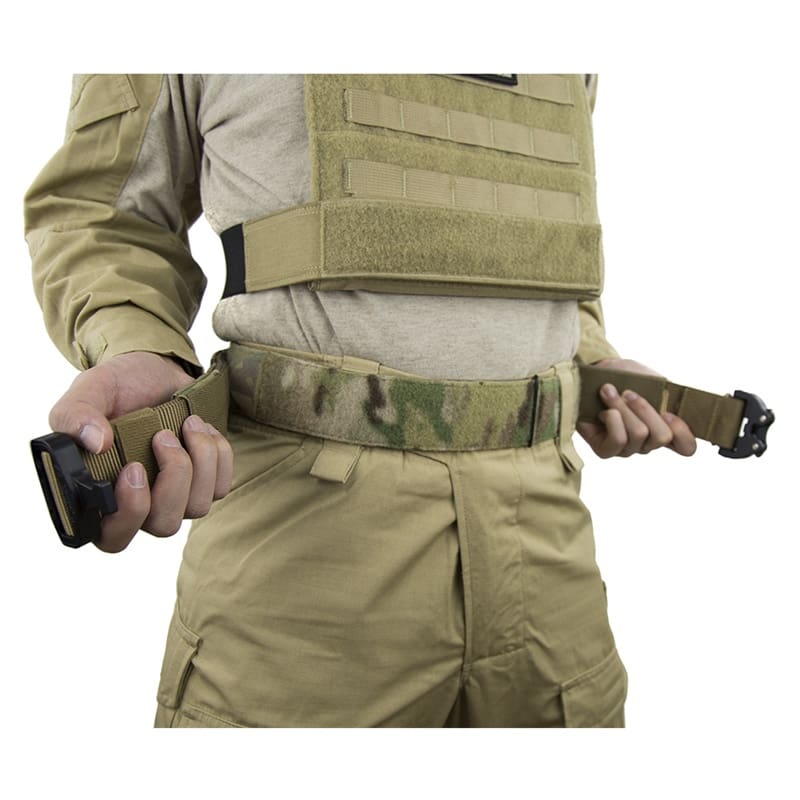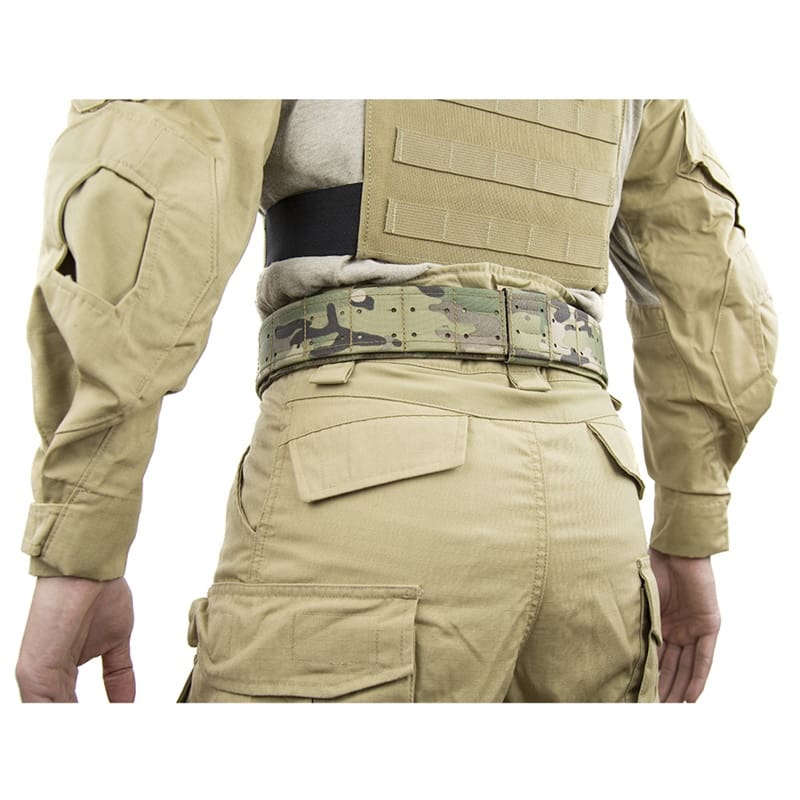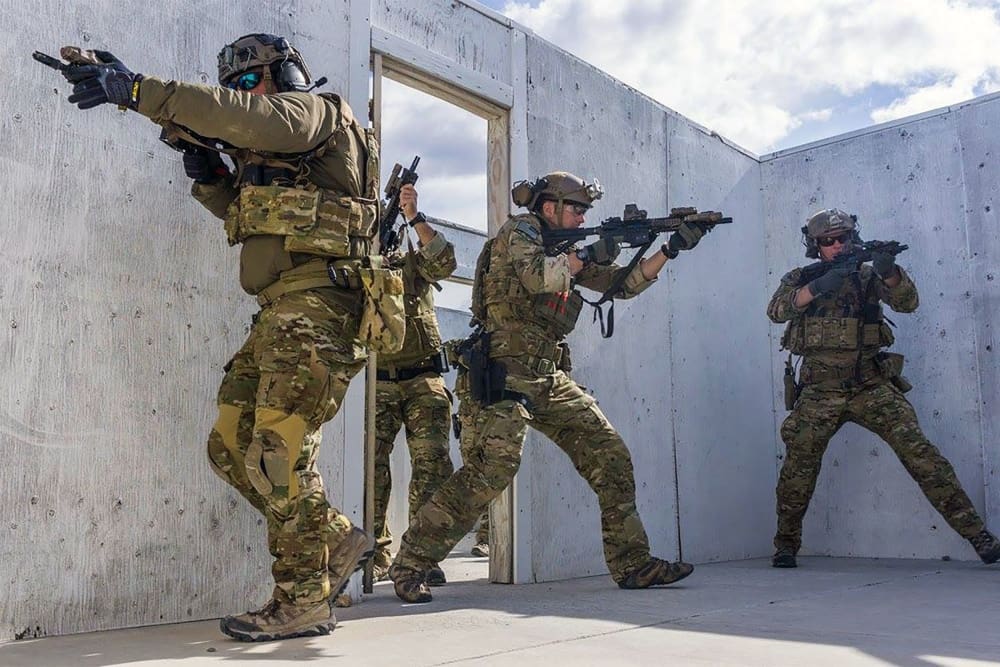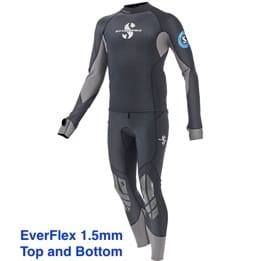
FORT POLK, La. – The 5th Security Force Assistance Brigade completed a first-of-its kind-rotation at the Joint Readiness Training Center’s 21-2 Rotation partnering an SFAB with a real-world unit, the Joint Base Lewis-McChord-based 1-2 Stryker Brigade Combat Team, “The Ghost Brigade,” in a decisive action validation exercise, Nov. 13-26, 2020.
“JRTC 21-02 was the culmination of 5th SFAB’s mission since its inception in June 2019 to man, equip, and train the Army’s newest combat brigade,” Brigade Operations Officer, Maj. Liam Walsh, said. “The training served as a proof of principle as the first SFAB Decisive Action CTC rotation.”
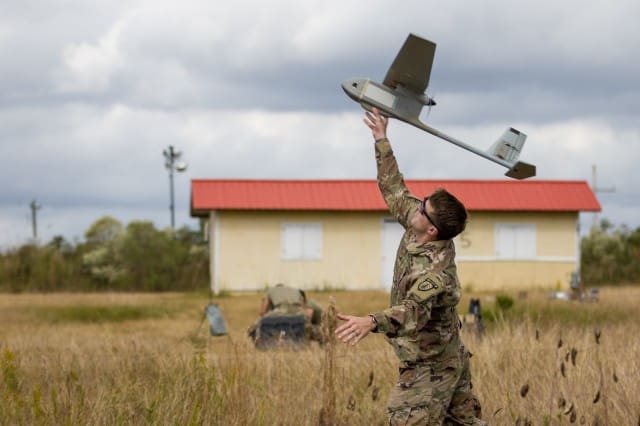
The Ghost Brigade closely integrated with SFAB Soldiers from the Brigade down to the Platoon level throughout the exercise.
“Our units worked alongside 5th SFAB, replicating the role of a professional, near-peer Allied army, which the SFAB was tasked to support as they would for a real-world partner force in the Indo-Pacific Command Area of Responsibility,” 1-2 SBCT Commander Col. Jared Bordwell said. “From the brigade to the individual levels, this rotation was all about supporting one another to make our team unbeatable.”

The SFAB is completely comprised of volunteers who were carefully vetted for service in the organization.
“This rotation has demonstrated that specially trained SFAB Soldiers, selected for their tactical expertise and professionalism, organized into small cohesive teams, and equipped with advanced communications systems can provide a decisive advantage to a threatened but capable foreign partner,” 5th SFAB Commanding General Brig. Gen. Curtis Taylor said.
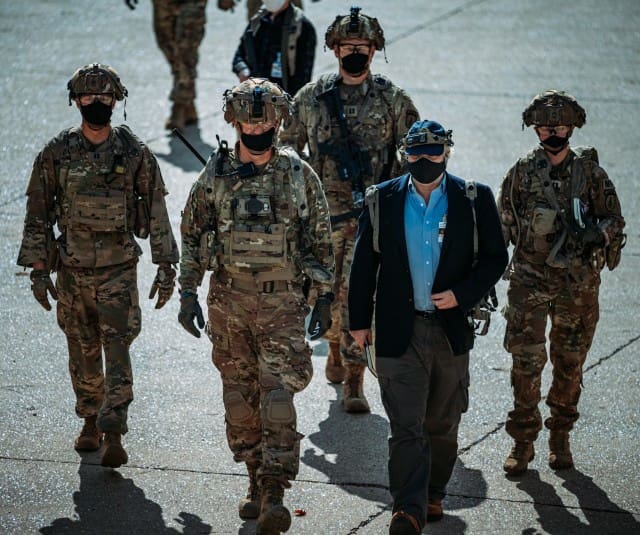
Altogether, seven units participated in the rotation including the 593rd Expeditionary Sustainment Command, 404th Army Field Support Brigade, 16th Combat Aviation Brigade, 2-2 Stryker Brigade Combat Team, and the U.S. Marine Corps’ 6th Air Naval Gunfire Liaison Company.
Aviation support proved extremely critical during the rotation.
“The 16th CAB’s assets here allowed 5th SFAB to support 1-2 SBCT with a unique aviation capability of Apache and Blackhawk helicopters,” Brigade Aviation Officer, Maj. Ryan Hampton said. “Integrating recon, attack and lift assets for 1-2 SBCT’s scheme of maneuver allowed them to seamlessly expand their lethal reach across the battlefield.”
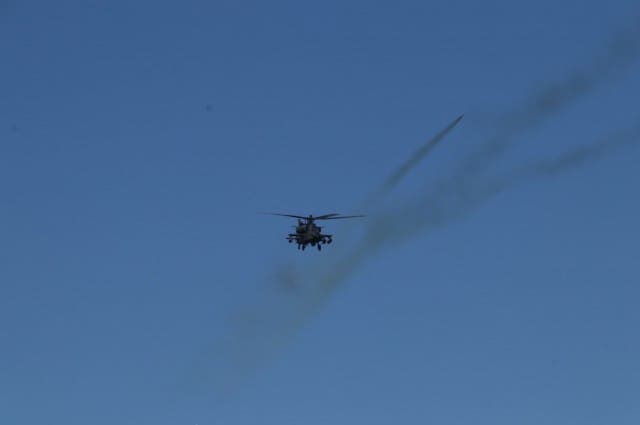
Hampton’s hard work in this regard earned him the title of, “Hero of the Battlefield” from JRTC Operations Group. Another Soldier recognized was 3rd Squadron Operations Advisor, Staff Sgt. Erica Myers.
“After training out here for two weeks, I really saw how diversity within our teams is a must,” Myers said. No one knows everything needed to successfully train alongside our partners, every Soldier is a crucial piece of the big picture.”
Myers’ also got the opportunity to advise several junior Soldiers from Ghost Brigade on the Raven Small Unmanned Aircraft System.
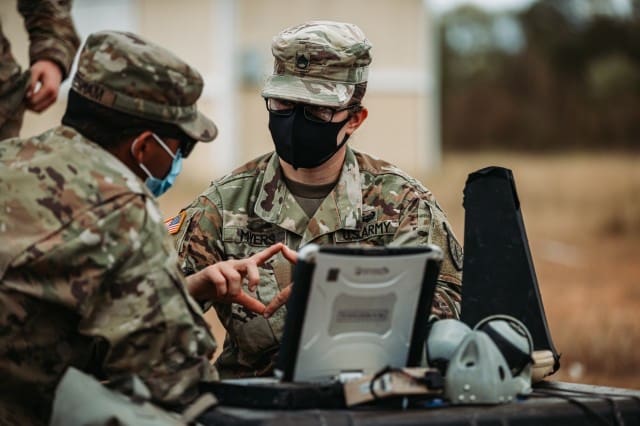
“They were certified but lacked confidence and understanding of their equipment,” Myers said. “The more time I had with them, the more confidence they gained. By the end of the rotation, I was able to get one of them their first solo flight and night flight.”
Myer’s Squadron Commander, Lt. Col. Timothy Ferguson shared a similar sentiment following the exercise.
“Our experience during JRTC 21-02 was a tremendous learning opportunity as it enabled us to visualize our role in the organization,” Ferguson said. “We gained invaluable experience through live repetition with our partnered force while forcing us to adapt and develop strategies across the competition, crisis, and conflict phases.

The 5th SFAB is expected to continue sending Teams into the Indo-Pacific region alongside U.S. partners there.
“As we look across the world today, there are many potential crisis scenarios where this kind of capability is absolutely vital to deterring aggression against US Allies and Partners,” Brig. Gen. Taylor said.
The 5th SFAB officially activated in May 2020 and has since sent Soldiers on missions to Thailand and Indonesia. With JRTC complete, the 5th SFAB has been validated for worldwide deployment in support of U.S. Combatant Commanders’ priorities.
By Maj William Leasure, 5th Security Force Assistance Brigade Public Affairs





